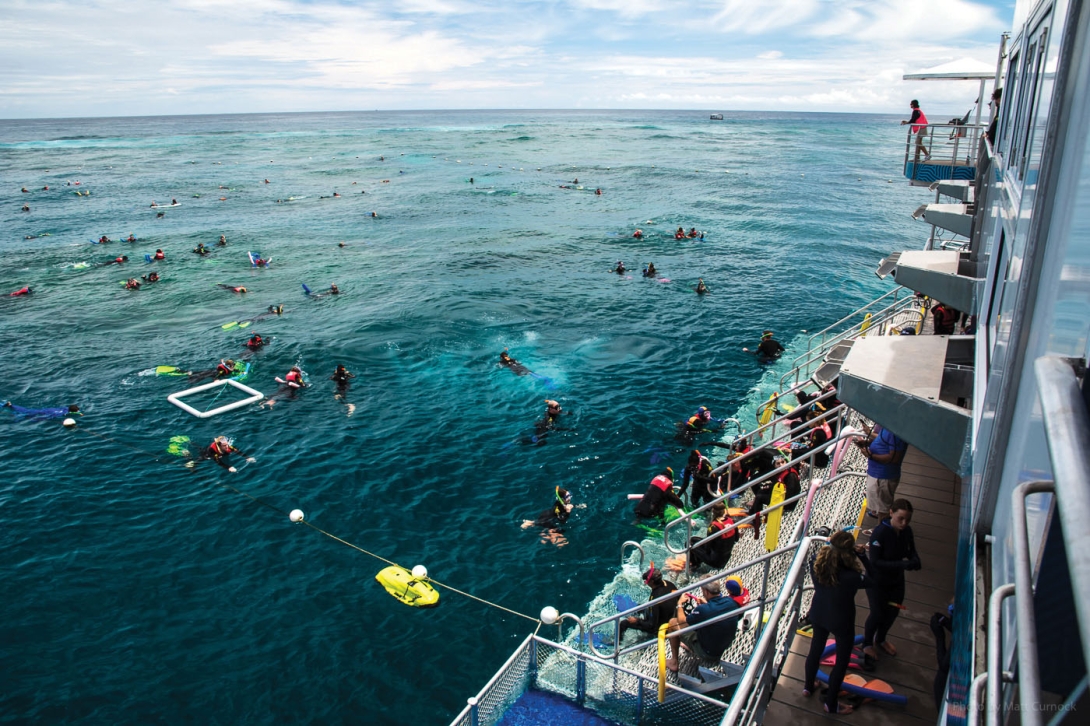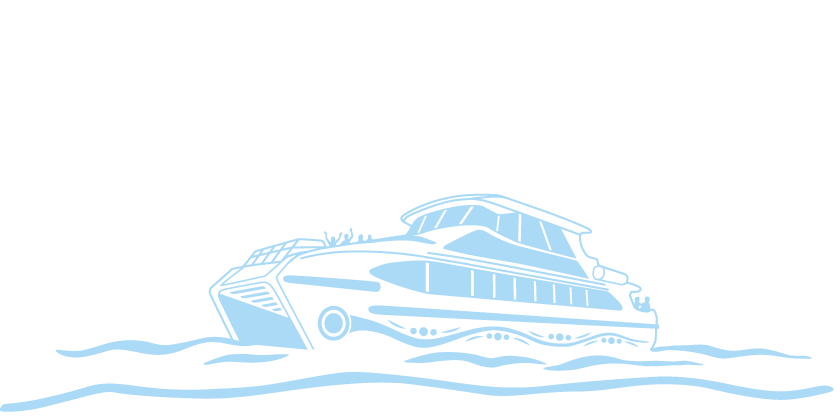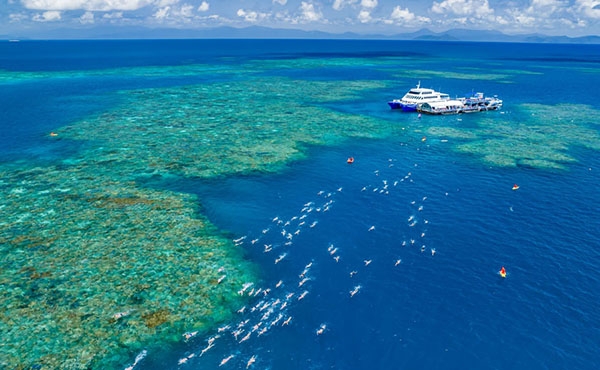The Reef continues to be recognised locally, nationally and internationally as an iconic nature-based tourism experience. The Reef can provide cultural, social or economic benefits to people, which links to personal wellbeing and a sense of identity (Section 4.5.1).1189 Commercial marine tourism delivers benefits to both tourists and tourism operators.1190
The Reef is an internationally recognised nature-based tourism experience
Since 2019, several management programs have identified participation and collaboration between Traditional Owners and the marine tourism industry as key to protecting and conserving the values of the Marine Park. This collaborative approach is consistent with new research into the degree to which visitor education empowers stewardship and engagement and results in environmental protection (Section 8.5.1).1190 Reef visitation with tourism operations is how people can easily connect with the Reef, and it can inspire visitors to adopt conservation and stewardship behaviours that can help protect the Reef.1191
Programs such as the Reef Authority’s site stewardship, Master Reef Guides (Box 5.1) and citizen science-focused Eye on the Reef benefit Reef management through visitor and industry contributions. Since 2019, 47 tourism operators have contributed to 19,754 Reef health surveys, compared to 36 operators and 4759 surveys over the preceding 5 years.1192,1193 Chapter 7 includes an assessment of the management effectiveness of these programs and other initiatives. The marine tourism industry also promotes education, protection and appreciation of natural and cultural values through ecotourism1194 and eco-certification.
Box 5.1
Master Reef Guides Program
Master Reef Guides are world-leading reef guides, storytellers and interpreters who share the wonders of the Great Barrier Reef World Heritage Area with their guests and the world. The program started in 2018 with 26 guides completing the course by the end of the first intake. The guides are associated with High Standard Tourism Operators and are ambassadors for the Marine Park.
The Master Reef Guide program is globally recognised as a leading platform for professional development within the marine tourism industry. By equipping these individuals with the knowledge, skills and support to deliver accurate, relevant and engaging information to visitors to the Reef and online communities, they are empowered to inspire change with their audience. The guides create connections with the natural ecosystems they share, promote responsible behaviours around these locations and, ultimately, provide exceptional experiences to those who visit the Reef. As of December 2023, more than 120 Master Reef Guides from across the Region have graduated through the program. Master Reef Guides participate in professional development including ongoing training, networking and leadership development through an annual masterclass and induction field school.
The Master Reef Guide program is led by the Reef Authority, in partnership with the Association of Marine Park Tourism Operators and Tourism and Events Queensland.1195,1196
Many marine tourism operators now undertake stewardship actions, for example, removing coral predators (such as crown-of-thorns starfish and Drupella snail culling and interventions), monitoring species diversity, collecting imagery and water quality data. Operators also keep an eye out for other impacts, such as illegal activities, oil spills and injured wildlife. These activities assist Reef managers with day-to-day management. The marine tourism industry is interested in implementing these stewardship approaches and other technologies, such as Reef interventions, to have a positive impact on the environment and local communities. However, how to achieve this and how to engage consumers in supporting sustainable tourism operations are often difficult to ascertain.1197
Commercial marine tourism in the Region contributes significantly to the economy. A value analysis of Reef-dependent and Reef-associated industries has not been undertaken since 2017 and remains a knowledge gap. Consequently, the economic value of the Reef is expressed here as a state or national value, rather than Reef-specific. In Australia, the domestic and international marine tourism output was $20 billion in the 2020–21 financial year, making it the second largest subsector in the marine industry.1198 Within Queensland, the output in the same period was estimated at $7 billion and $29 million for domestic and international, respectively. The domestic marine tourism industry also provides the largest share of employment of all marine industries in Australia. In 2020–21, this industry generated an approximate total of 140,000 direct and indirect jobs nationally.1198 In Queensland in the financial year 2021–22, the total tourism‑filled jobs (both direct and indirect) totalled 206,200 (up 32 per cent on 2020–21 and down 17 per cent on 2018–19).1199



